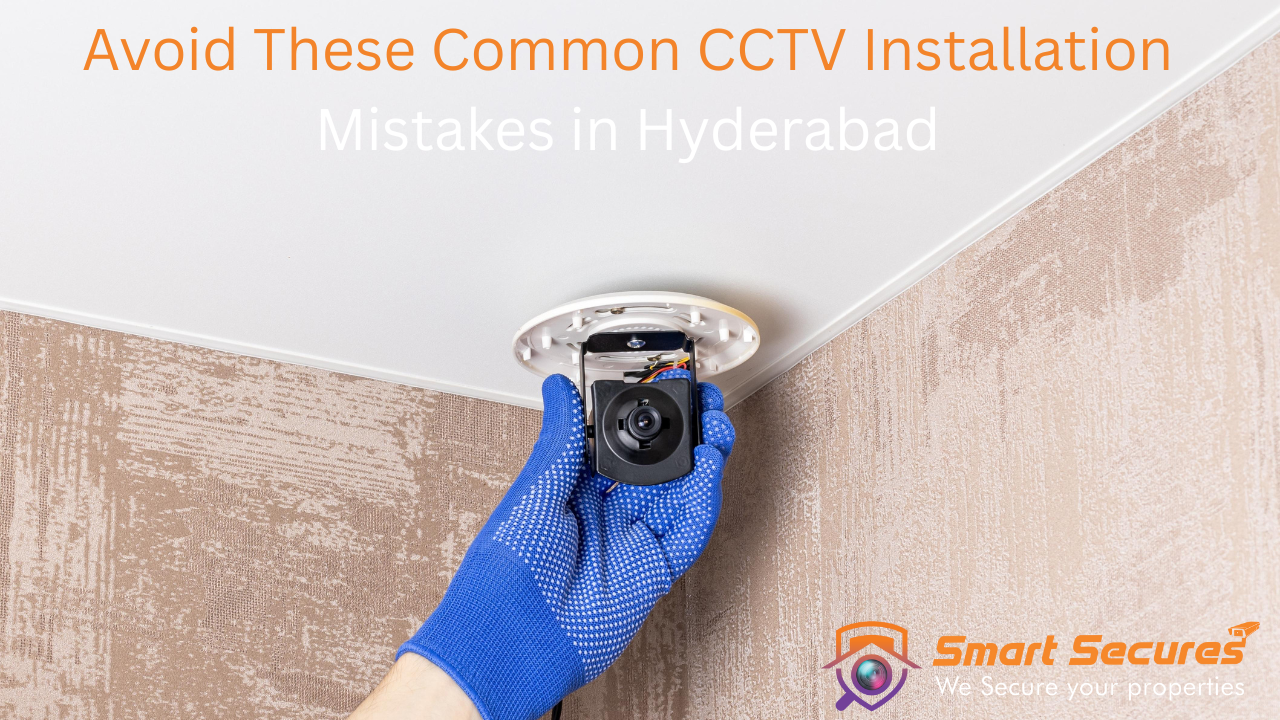Home > Blog > Avoid These Common CCTV Installation Mistakes in Hyderabad
CCTV camera installation is essential for protecting Hyderabad's homes, businesses, and public spaces. However, many people make simple yet costly errors during installation.

CCTV camera installation is essential for protecting Hyderabad's homes, businesses, and public spaces. However, many people make simple yet costly errors during installation. These mistakes can affect the system’s performance and reduce its effectiveness. Here's a breakdown of the most common CCTV installation mistakes and how to avoid them.
Location is everything in CCTV installation. Many people place cameras where they don’t capture the full area or important entry points. Installing cameras too high or too low also limits visibility. Avoid areas with too much light or complete darkness unless your camera supports wide dynamic range or infrared.
Quick Fix: Always plan your layout. Cover all entry points and main areas. Hire a professional for proper placement.
One of the most overlooked CCTV camera installation mistakes is poor power planning. Using cheap or long extension cables can lead to voltage drops. Tangled or exposed wires also create safety hazards and look unprofessional.
Quick Fix: Use quality power supplies and organise cables using proper conduits or trunking. Ensure every camera has a stable power connection.
Sure! Here's the simplified version of that section:
Some people try to save money by buying cheap cameras. But these cameras don’t show clear videos.
In Hyderabad, the weather can be hot, rainy, or dusty. Cheap cameras might stop working soon. Also, don’t use old devices that can’t save videos online or don’t let you check from your phone.
Easy Fix:
Buy good-quality cameras. Choose ones with good reviews and a warranty. Make sure they can see at night and work in all weather.
Many people install cameras but forget to turn on the feature to watch videos from their phone. Without this, you can’t check your cameras when you're not home.
Easy Fix:
Ask the person installing your cameras to set up phone or app access. Most cameras today can be watched from anywhere using the internet.
Doing it yourself might seem economical, but it's one of the major CCTV installation mistakes. Improper setup can result in blind spots, unstable connections, or unsecured systems.
Quick Fix: Search for "CCTV installation near me" or "CCTV camera installation near me" to find trusted local experts. Let professionals handle the job right.
Leaving your system on default usernames and passwords is a serious security risk. Hackers can easily access your live feed or recordings.
Quick Fix: Change all default credentials immediately. Update software and firmware regularly to prevent security loopholes.
Many users assume that once installed, CCTV cameras don’t need attention. Dirt, weather, or technical glitches can degrade the quality over time.
Quick Fix: Schedule CCTV maintenance service at least twice a year. Clean lenses, check wiring, and update software to ensure top performance.
CCTV camera installation is a smart move for safety, but avoiding these common mistakes is vital. Whether it’s choosing the right equipment or setting it up correctly, attention to detail matters. Always prefer professional CCTV installation services in Hyderabad for better security, efficiency, and peace of mind.
The price varies by camera quality and coverage area. Basic setups start from ₹5,000 onwards.
Typically, 2–4 cameras cover a 2bhk home—entry gate, hall, and backdoor areas are essential.
You can, but it’s not advisable unless you have technical knowledge. Improper installation may affect performance.
Wireless cameras are easier to install but may face signal issues. Wired systems are more stable and secure.
Search online using terms like CCTV installation near me or check Google reviews of local service providers.

5,852 reviews